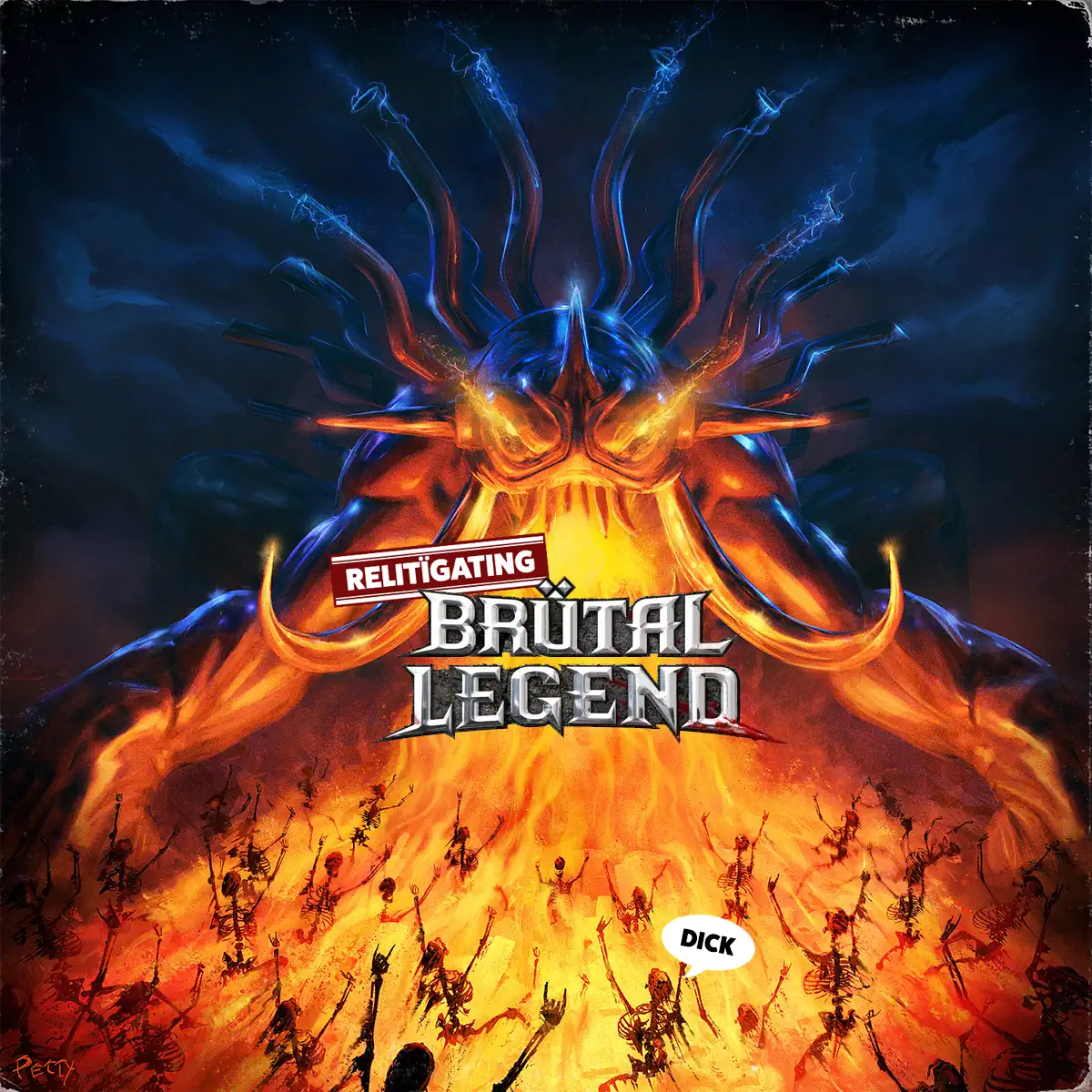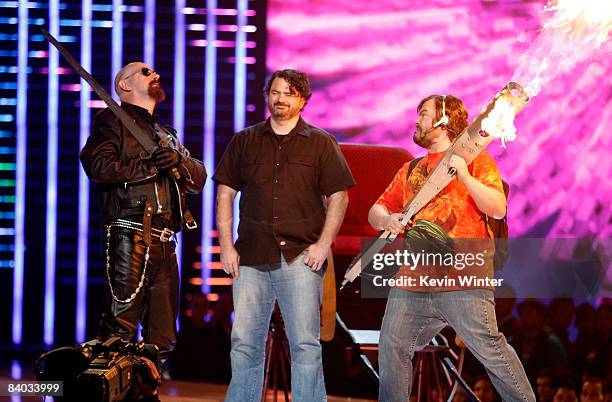Articles

Relitigating Brütal Legend Page Three

And so history repeated itself. When Microsoft had similarly dropped Psychonauts in 2004, however, there was at least no bad blood involved; this was to play out a trifle differently. In an echo of the Psychonauts situation, Double Fine was after six months on the ice floe able to announce a new home for their game at Electronic Arts – Activision’s chief rival – under the mega-publisher’s EA Partners division, formed for carrying third party indies. It was a rollercoaster of an arc for the project and part of a supposed redemptive phase in EA’s story, one that didn’t escape dramatization by our generation’s finest songwriter.
The newlyweds wasted no time making a splash, with the game’s re-announcement trailer debuting at the 2008 edition of the SpikeTV Video Game Awards that same month. True to form, the annual event was an overproduced bonanza, with Black mugging to the moon, wielding a flame thrower, and paying fealty to “Tim Freaking Schafer” as the CEO of Double Fine was carried onto the stage on a chariot flanked by skimpily clad women. Here is the trailer that was shown there, revealing the new (and at last, accurate) release window of Fall 2009:
This should have spelled the end of the game’s external troubles. Instead, Activision Blizzard took Double Fine to divorce court. The first arrow was notched in February 2009, when Variety reported that Activision Blizzard considered its publishing option with Double Fine still active, invalidating the deal subsequently struck with EA. It didn’t go unnoticed by observers that Activision suddenly found the game it rejected interesting again now that it was enjoying positive hype. The relationship analogy extended to the response that an anonymous EA rep offered to the publication:
We doubt that Activision would try to sue. That would be like a husband abandoning his family and then suing after his wife meets a better looking guy.
It remains unclear what legal standing Activision had in the matter, but sue they did in June, leading Tim to get off a zinger of his own:
Hey, if Activision liked it, then they should have put a ring on it. Oh great, now Beyoncé is going to sue me too.
Rather than having any interest in reclaiming the game, Activision's inferred objective was to get reimbursed some percentage of Vivendi’s sunk development costs, while Double Fine took the position, articulated in its countersuit, that the publisher had relinquished all claims when it dropped the game.
It was bitchy fun to follow this stuff on internet forums, and EA wasn’t betraying any fear that the game’s release was in real jeopardy, but to state the obvious, the situation added a wholly gratuitous layer of stress on a team that was working tirelessly to get an ambitious product out the door. As producer Caroline Esmurdoc put it in her post-mortem for the game written for Game Developer magazine:
The lawsuit was filed just as the game went Alpha, with a stipulation that it be heard prior to Gold Master being submitted -- relegating Tim and myself and a cadre of team leaders to the unenviable job of information gathering, declaration writing, lawsuit reading, witness interviewing and all around non-game-making during the crunchiest, most critical time of development. The lawsuit took its toll on the team, on the company, on our product and on our optimism.
